Russia
«Очень трудно слушать Путина непредвзято: слишком долгая пройдена с ним семейная жизнь. И срок этой политической семейной жизни — 13 лет — он симптоматичный… 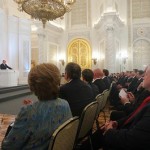
«непреодолимыми противоречиями» — так супруги называют причину в суде, чтобы не полоскать прилюдно малоприятные подробности… Но раз в год собирается семейный совет, и глава семьи рассказывает, как он видит жизнь в будущем году… Cовет этот в масштабах страны называется Посланием Федеральному собранию, и мы стали тому свидетелями… »
Статья – Матвей Ганапольский – Московский Комсомолец № 26117 от 13 декабря 2012 г.
Дорога великолепно характеризует Россию и ее образ жизни. Москва все ближе к транспортному коллапсу.
3 Dec 2012«Перехватывающие парковки, новые объекты дорожной инфраструктуры, свежие правила для автолюбителей… После долгих лет пассивности московская власть наконец-то взяла на себя инициативу, чтобы постараться уменьшить риск предстоящего коллапса мегаполиса.
А разве уже не поздно? — сразу спрашиваю я себя…
Всякий раз, когда я еду по Москве и вообще по вашей стране, получаю однозначное подтверждение тому, что дорога великолепно характеризует Россию и ее образ жизни. Но давайте не философствовать… 
Вкратце: дороги в России — это коррумпированная среда, которая складывается из недоверия, жульничества, неумения… Конечно, добавим сюда еще неосторожность водителей (иначе как объяснить 35—40 тысяч жертв ДТП в год) и непрофессионализм строителей.
«У нас в России, — говорит моя огорченная приятельница, — никто не думает о том, как устроить удобства для населения. Все лишь пытаются извлечь какое-то личное благо». Разве она не права? … »
Статья – – Джузеппе Д’Амато Московский Комсомолец № 26107 от 1 декабря 2012 г. Giuseppe D’Amato Moskovskij Komsomolets.
Poland, Lithuania, Russia: Respect for the dead!
30 Nov 2012Lithuanian police have arrested five people after a tomb containing the heart of Polish national hero Jozef Pilsudski was vandalised in Vilnius on November 24th. The bunch of thugs also draped a banner with the words “Poles die” and left a box with “attention bomb” and “TNT” written on it. 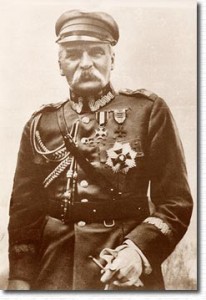
The Polish ambassador in Vilnius, Janusz Skolimowski said he has received assurances that security will be stepped up at the Rossa Cemetery. Pilsudski was born in Zulow near Vilnius, then part of the Russian empire, in 1887. After his death in 1935 his body was buried in Krakow, while his heart was taken to Vilnius.
At the same time, the Vremya news magazine on Russian Channel One reported that in 1953, when Polish authorities decided to dig up the remains of Russian soldiers who died fighting Nazi German forces in Kostrzyn nad Odra in western Poland, so as to re-bury them in large cemeteries around the country, they did so by only partially removing all the body parts.
Last October a research dig found that 102 out of 110 bodies had been re-buried with their skulls or other parts missing.
The Russian news programme claimed the “barbaric” exhumations showed a “monstrous lack of respect for the dead” and reported that Russian authorities had called on Poland to give a full explanation as to why the bodies of “soldiers who liberated Poland from Nazi Germany” were shown so little respect.
“Standards in 1953 differed significantly from those of today,” Adam Siwek from Poland’s state-backed Council for the Protection of Struggle and Martyrdom has already answered.
Source: Polish Radio
Medio Oriente, la posizione russa.
24 Nov 2012 Israeliani e palestinesi hanno i soliti scontri ciclici. In Siria assistiamo ad una guerra tra arabi. Il Cremlino difende nella regione i suoi tradizionali alleati. Questo è il quadro tracciato da Adzhar Kurtov, uno dei massimi esperti russi di Medio oriente.
“A Gaza – sostiene lo specialista dell’Istituto di ricerche strategiche di Mosca – si è osservato una lotta tra impari: una parte (gli israeliani) armata di tutto punto, l’altra (i palestinesi) no. Adesso tutto tornerà come prima, fino ad una prossima campagna”. 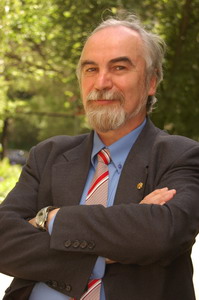
Certo, molte delle armi di Hamas sono state distrutte. Ma quale è il vero ruolo della Russia nello scacchiere mediorientale? “La Russia ha una posizione chiara sulla crisi siriana. Primo: blocco delle interferenze esterne con aiuti ai gruppi armati. Siamo di fronte ad una vera aggressione, non nascondiamocelo. Secondo: ricerca di una soluzione negoziale. Se il recente cambio di Costituzione non va bene serve definire una nuova Legge Fondamentale. Che si tengano le elezioni! Ormai vi sono gruppi di Paese, mi riferisco a quelli del Golfo in particolar modo, che riconoscono un altro governo siriano”.
Mosca mantiene ancora una qualche influenza nell’area? “La Russia non è più l’Urss. Ha meno influenza come hanno dimostrato le recenti ‘primavere’ arabe. Il Cremlino rimane però fermo sulle proprie posizioni. Prima fra tutte: difendere i propri alleati. Poi mettere il diritto internazionale davanti a qualsiasi crisi. E’ vero l’export russo di armi è importante. Ma i nostri primi compratori sono gli indiani e i cinesi”.
Non è che i Paesi del Golfo abbiano colmato quel vuoto di influenza nel Medio oriente lasciato vacante dall’Urss? “Stiamo assistendo ad uno scontro all’interno del mondo arabo. I Paesi più conservatori, mi riferisco al Qatar ed all’Arabia Saudita (entrambi sunniti), cercano di regolare i propri conti con gli sciiti. Le operazioni in Siria mirano a colpire il maggiore alleato dell’Iran (sciita). Come tutte le guerre religiose anche questa è cruenta”.
L’Occidente sembra rimasto in disparte a guardare. “Gli Stati Uniti sono interessati all’indebolimento del regime degli ayatollah ed alla sua sostituzione a Teheran con uno pro-occidentale. Il rischio di perdere il controllo della situazione è alto. L’Afghanistan dei talebani insegna qualcosa, no? A Washington, però, si è convinti di creare ad altri i problemi, non a sé stessi”.
In conclusione, tornando alla questione di Gaza come finirà? “Non credo che nel breve periodo vedremo due Stati, uno israeliano ed uno palestinese. Non v’è alcuna volontà di riconciliazione. Al massimo si potranno congelare i dissidi”.
Венгрия и Россия в постсоветской Европе.
20 Nov 2012 «Лишь 45% населения Венгрии имеет представление об истории и литературе России — такие данные обнаружило исследование общественного мнения, проведенное по просьбе Центра русистики Будапештского университета имени Этвеша Лорандата.
В ходе исследования была опрошена тысяча человек — по репрезентативной выборке. Выяснилось, что 47% населения в первую очередь определяет Москву как центр империи — или Советского Союза». …
Статья – Петер ШОМФАИ – МК 19.11.2012
«Самые длинные газовые трубы. Самые крупные нефтяные сделки. Самый большой флот атомных ледоколов. Россия (точнее, Роснефтегазпроматомфедерация) — энергический чемпион мира. Во всяком случае что касается количества.
А что же разваливающаяся Европа? … 
Пока в России идет стремительная централизация энергетических активов в руках госмонополистов, Запад пытается децентрализовать производство энергии. Десятки, уже даже сотни тысяч мелких производителей вместо нескольких крупных концернов. Это можно назвать и демократизацией экономики, но по сути дела происходит техническая и организационная революция…
Россия по сути игнорирует энергетическую революцию остального мира. В России даже по телевизору я не видел того, что вижу всякий раз, когда на самолете приземляюсь в Германии: лес белых ветрогенераторов с огромными винтами. Россия продолжает спать сладким сном нефтегазовой принцессы. Михаила Горбачева здесь не любят, наверное, уже из-за одной-единственной цитаты: «Кто опаздывает, того жизнь накажет».
Статья Штефан Шолль – Московский Комсомолец № 26091 от 13 ноября 2012 г., Stefan Scholl Moskovskij Komsomolets
Russia and the whole Eastern Europe are observing the last days of the US presidential campaign with great interest. Barack Obama and his challenger, Mitt Romney, represent an opposite approach to the problems of the region.
In 2009 the now outgoing president launched the “reset” policy in order to restore the relationship with the Kremlin after the war in Georgia. During his campaign the candidate of the Republicans has promoted Russia to “number 1 geostrategic foe of the United States”. 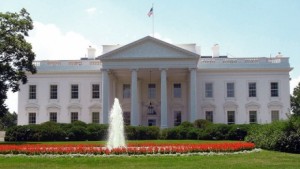
So, the question is: if Romney wins, will Europe come back to the Cold War epoch?
The answer is negative. First of all, even if Russia is considered a “resurgent” power by the experts it has finally lost the status of superpower held by the Soviet Union until 1991. At the moment, it has a more limited weight in the world’s political, economic, and military affairs.
Moscow is no more a hated enemy, as it was for four decades in the 20th century. It is a useful ally in places like Afghanistan, but also a partner, who has often criticized the Western positions on issues like Syria or Iran, and an energy supplier to the US strategic reserves.
In short, Russia is not a threat for Washington or the European Union as it was the Soviet Union. Today’s challenges in the era of the globalization are completely different from those of the past.
Mitt Romney killed two birds with one stone. He used that old fashioned definition, because he simply wanted to attack Obama and its foreign policy, not Russia, that remains – anyway in elderly American people mind – an adversary.
Barack Obama promised the Russians to be more “flexible” after the elections. In 2009 he started a new period in the bilateral relationship, but he did not invite Moscow to join from inside the regional anti-missile Shield in the future controlling Headquarters.
That would represent the decisive recognition of the successful end of the Russian democratic evolution which began in 1991. Former Kremlin’s European satellites, now US allies, are still hesitant to make that historic step. Protests in Moscow and the repression of the dissent will further delay any other openings.
Nonetheless, in these four years there have been positive changes in the US-Russian relationship. Moscow and Washington signed the nuclear arms control treaty in 2010 and this year the White House has supported Russia’s accession to the World Trade Organization.
Vladimir Putin has recently described Barack Obama as “a genuine person” who “really wants to change much for the better”. The Russian leadership, including Dmitry Medvedev, has good personal relationship with him and, if it were able to vote the Kremlin would choose Obama.
But if Romney is elected president it will not be a catastrophe. From the internal political perspective Romney’s victory would guarantee president Putin a useful adversary determined to subvert the state of rule in the Motherland and former USSR. And it would be easier to justify the astronomically expensive 10-year rearmament plan for the armed forces ($770 billion), especially now when the economic crisis is narrowing and social problems are becoming more serious every day.
Giuseppe D’Amato
«Холодные отношения с Западом, продолжительная ссора с Японией, потеря почти всех союзников в арабском мире. Остаются, конечно, Иран и Китай, но с партнерами из Поднебесной уже долгие годы невозможно заключить ключевого для российской экономики договора о приемлемых тарифах на газ… 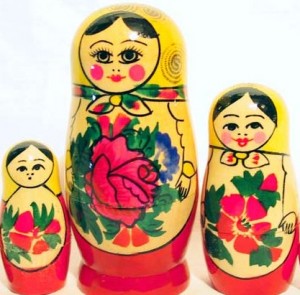
На традиционный вопрос о том, куда идет Россия, в эти сложные месяцы получен однозначный ответ: к самоизоляции…
Даже из Европы слышно, как нарастает громкость традиционной для России фразы: «Мы слишком большие, поэтому нас никто не любит!». …
не верьте пропагандистским бредням. Людей, которые ведут себя достойно, любят повсюду. Предрассудки и глупые клише в современном мире долго не живут. Историям о том, что зимой медведи гуляют по московским улицам, давно никто не верит. Но заморозки в отношениях с Россией, к сожалению, ощущаются. И очень не хочется думать, что нас снова ждет политическая зима».
Статья – Джузеппе Д’Амато Московский Комсомолец № 26074 от 23 октября 2012 г. Giuseppe D’Amato Moskovskij Komsomolets.
On October 9th at 2 p.m. meeting in support of Radio Liberty at the US embassy in Moscow. On October 10th journalists.

—
To the International Committee of the U.S. Congress
U.S. Secretary of State Hillary Clinton
Senator Benjamin Cardin
September 27, 2012
Dear Mr. Cardin, dear Ms. Clinton
We deeply regret to officially announce that following the decision of the management Radio Liberty stops its medium- wave broadcasts.
It has been done at the moment, when the regime of Vladimir Putin launched a new attack on the freedom of speech and Democratic movements in Russia. Human rights organizations are declared “foreign agents”, USAID stops its work in Russia.
Radio Liberty has existed for more than 60 years and for the whole generations of 1960- 80th was a source of accurate information. Current situation in Russia looks more and more like USSR. Current domestic and foreign policy is determined by people, who came from KGB and it is becoming clear, that we cannot lose the traditions of the station, which has always been taking very active civil position based on the universal values of freedom, democracy and human rights. In today’s Russia all these values are being attacked by the government.
Reorganization of Radio Liberty work was carried out in a form of shameful and abusive for its employees “special operation”. Any KGB could not harm the image of the radio and the United States in Russia as did US managers- the President of the Radio Liberty Steven Korn and the vice- president Julia Ragona.
They have ignored BBG’s (Broadcasting Board of Governors) findings confirming the effective work of the Russian service of Radio Liberty (http://www.bbg.gov/wp-content/media/2012/02/FY-2013-BBG-Congressional-Budget-Request-FINAL-2-9-12-Small.pdf). A team of journalists, who used to create radio and internet content, a team that used to bring hundreds of thousands of spectators of democratic rallies broadcasts in 2011-2012 is dismissed.
Mr. Korn and Ms. Ragona’s staffing solutions were conducted without even slightest consideration of the creative contribution and potential of each employee. Dismissed are the professionals with stainless reputations. Some of the journalists have left Moscow office of Radio Liberty deliberately on moral grounds.
Additionally a new head of the Russian service is assigned a person, who received negative assessment as a manager at her previous jobs. A person never previously engaged in a kind of work offered by the Radio Liberty.
Mass dismissals of journalists have disorganized the work of the broadcast and the work of the radio’s website for extended period.
Scandalous publication about the activities of American management team of the radio appeared in Russian and foreign press. The managers themselves could not explain their decisions to the Russian society. These decisions look very strange, while the financing of the Russian service for years 2012- 2013 has not been reduced, but in fact even increased.
From now on, every time Russian authorities will decide to close one or another independent media, they will refer to for them very convenient “experience” of the management of Radio Liberty.
We do not have any information about a new concept of multimedia portal that was proposed instead of public over- the –air and internet broadcasting and we are concerned that this new concept might be contradictory to the goals and missions established by the U.S Congress and BBG and to the goals and missions of Radio Liberty in Russia.
We ask the Congress to set up a special commission to investigate the activities of the Radio Liberty’s management, which caused such damage to the image of the United States in Russia and review the decisions that have been made.
With kind regards,
Lyudmila Alekseeva, Chairwoman of the Moscow Helsinki Group
Sergei Kovalyov, Chairman of the Russian “Memorial”, the chairman of the Public Commission for the Preservation of the Heritage of Academician Sakharov — Andrei Sakharov Foundation
Vladimir Bukovsky, Writer, a former political prisoner in the Soviet Union
Tatiana Yankelevich, Center Associate, Davis Center for Russian and Eurasian Studies Harvard University, Cambridge, MA, daughter of Elena Bonner and Andrei Sakharov
Pavel Litvinov, a former political prisoner in the Soviet Union
Alexei Simonov, the President of the Glasnost Defense Foundation
Lev Ponomarev, Executive Director of the Russian movement “For Human Rights”
—
What happened at Radio Liberty in Russia. Elena Rykovtseva in Novaya Gazeta.
Vladimir Putin turns 60. His numbers.
7 Oct 20121 — The number of rare tiger cubs Putin was given on his birthday in 2008. He declined to reveal who gave him the cubs. But Putin Chechen leader Ramzan Kadyrov, a Putin appointee, is known to be the proud owner of a pet tiger.
2.6 — The price in U.S. dollars of a barrel of oil in 1952, the year Putin was born in Leningrad.
6 — The number of years that have passed since Journalist Anna Politkovskaya was shot dead outside her apartment in Moscow on October 7, 2006, Putin’s 54th birthday.
11 — Putin’s age when he began learning sambo and judo. He holds a black belt in the latter. 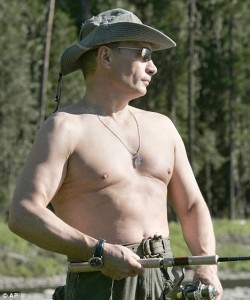
12 — The number of female Moscow State University students who posed in lingerie to mark Putin’s 58th birthday in 2010 in a racy calendar.
16 — The number of years Putin served in the KGB. Five of these Putin worked in Dresden in East Germany. In 1991, he officially retired from the KGB as a lieutenant colonel and became deputy mayor of St. Petersburg, serving under his old law professor Anatoly Sobchak.
20 — The number of palaces, dachas, and country retreats at Putin’s disposal, according to a report drafted by opposition figure Boris Nemtsov. The report, released earlier this year, is ironically titled “The Life of a Galley Slave,” in reference to a phrase Putin once used to describe his life as president.
26.1 — The price in U.S. dollars of a barrel of oil in December 1999 when Putin became Russia’s acting president after Boris Yeltsin’s resignation.
29 — The age of Alina Kabayeva, one of Russia’s most successful rhythmic gymnasts, now a State Duma deputy for United Russia. Russian media has reported on widespread — and unconfirmed — rumors that Kabayeva is Putin’s mistress.
54 – The age of Lyudmila Putina, Putin’s estranged wife.
58 — The number of airplanes and helicopters at President Putin’s disposal, according to Nemtsov’s “Life of a Galley Slave” report.
87.9 — The price in U.S. dollars of a barrel of oil on the eve of Putin’s 60th birthday.
140 — The number of characters used in an impromptu Twitter flash mob last year to mark Putin’s 59th birthday, in which the opposition popularized the “Thank Putin for That” hashtag (#CпасибоПутинуЗаЭто). It was followed by a stream of ironic jibes at the president.
1600 — The time on October 7 that the opposition plans to announce the winner of the most “creative” birthday present for the president. The voting will take place via Facebook on a page called “Let’s Help An Old Man Retire.” It is being organized by Rosagit, a group affiliated with anticorruption blogger Aleksei Navalny.
2002 — The year Putin received for his birthday a dog that could bark “Vova” — the diminutive and affectionate form of his first name, Vladimir.
2,370 — Russia’s average monthly salary in rubles when Putin came to power.
4,230 — The number of days that Putin will still be in the Kremlin if he successfully serves two more terms, until May 7, 2024. He would be 72 years old.
20,702 — The average Russian salary in rubles in 2011, according to Rosstat.
120,000 — Putin’s official salary in dollars.
141.9 million — Russia’s current population. Russia has been in the grips of a demographic crisis spurred by its low male life expectancy and low birth rate, although there is evidence that Russia is beginning to reverse these trends.
146.3 million – The Russian population when Putin came to power.
260 billion — Russia’s GDP in U.S. dollars when Putin first came to power.
1.86 trillion – Russia’s GDP in U.S. dollars in 2011.
RFE/RL correspondent Tom Balmforth
Source: Radio Free Europe/Radio Liberty
Welcome
We are a group of long experienced European journalists and intellectuals interested in international politics and culture. We would like to exchange our opinion on new Europe and Russia.
Categories
- Breaking News (11)
- CIS (129)
- Climate (2)
- Energy&Economy (115)
- EU Eastern Dimension (85)
- Euro 2012 – Sochi 2014 – World Cup 2018, Sport (43)
- Euro-Integration (135)
- History Culture (198)
- International Policy (261)
- Military (74)
- Interviews (18)
- Italy – Italia – Suisse (47)
- Odd Enough (10)
- Poland and Baltic States (126)
- Religion (31)
- Russia (421)
- Survey (4)
- Turning points (4)
- Ukraine (176)
- Российские страницы (113)
Archives
- November 2020
- October 2020
- September 2020
- August 2020
- July 2020
- May 2020
- April 2020
- March 2020
- January 2020
- December 2019
- November 2019
- October 2019
- September 2019
- August 2019
- July 2019
- June 2019
- May 2019
- April 2019
- March 2019
- February 2019
- December 2018
- November 2018
- October 2018
- September 2018
- August 2018
- July 2018
- June 2018
- May 2018
- April 2018
- March 2018
- February 2018
- January 2018
- December 2017
- November 2017
- October 2017
- September 2017
- August 2017
- July 2017
- May 2017
- March 2017
- January 2017
- December 2016
- November 2016
- October 2016
- September 2016
- July 2016
- June 2016
- May 2016
- April 2016
- February 2016
- January 2016
- November 2015
- October 2015
- September 2015
- June 2015
- April 2015
- March 2015
- February 2015
- January 2015
- December 2014
- November 2014
- October 2014
- September 2014
- August 2014
- July 2014
- June 2014
- May 2014
- April 2014
- March 2014
- February 2014
- January 2014
- December 2013
- November 2013
- October 2013
- September 2013
- August 2013
- July 2013
- June 2013
- May 2013
- April 2013
- March 2013
- February 2013
- January 2013
- December 2012
- November 2012
- October 2012
- September 2012
- August 2012
- July 2012
- June 2012
- May 2012
- April 2012
- March 2012
- February 2012
- January 2012
- December 2011
- November 2011
- October 2011
- September 2011
- August 2011
- July 2011
- June 2011
- May 2011
- April 2011
- March 2011
- February 2011
- January 2011
- December 2010
- November 2010
- October 2010
- September 2010
- August 2010
- July 2010
- June 2010
- May 2010
- April 2010
- March 2010
- February 2010
- January 2010
- December 2009
- November 2009
- October 2009
- September 2009
- August 2009
Our books




